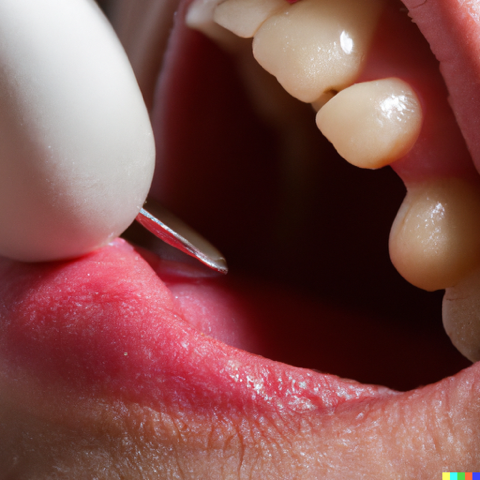It’s often said that death and taxes are the only certainties in life, but for many people, a visit to the dentist can also be a dreaded inevitability. Indeed, visiting the dentist is the kind of thing that can make even the toughest person break out in a cold sweat.
The experience of dental procedures varies widely among patients, with teeth whitening being one of the least disliked procedures. However, it appears that a person’s location can also influence their experience, as found in a survey of 4,500 patients by NextSmile.com, a resource dedicated to dentures and oral health. They found that almost 1-in-5 (19%) respondents reported feeling traumatized by their most recent visit to the dentist. While this statistic is concerning, it is particularly alarming to note that residents of Arkansas appear to have had the worst experiences, with 37% of those surveyed describing their dental visit as ‘traumatic’. Conversely, only 16% of respondents in Vermont felt the same way.
“These findings highlight the need for greater attention to patient comfort and satisfaction in the dental industry. A visit to the dentist can be a source of anxiety for many individuals, and it is essential that dentists take steps to alleviate these fears and ensure that patients feel comfortable and well-cared-for throughout their appointment” says Kathryn O’Brien, editor at NextSmile.com.
Survey respondents were also asked to rank which procedures distress them the most, and these were:
- Root Canal: A root canal is a procedure in which the dentist removes the infected or damaged pulp from inside the tooth.
- Dental Implants: The process of inserting a dental implant into the jawbone can be quite painful, as the dentist must drill into the bone to make a hole for the implant.
- Periodontal Surgery: Surgery to treat periodontal disease can be quite painful, as the dentist must remove damaged tissue and clean out the infected areas.
- Tooth Extraction: Having a tooth pulled can be a painful process, especially if the tooth is impacted or has deep roots.
- Tooth filling: A common dental treatment that is used to repair cavities or damaged teeth.
Twenty-four percent of patients also reported that they have delayed or put off procedures entirely due to fear of the procedure. Moreover, over 1-in-10 (12%) said that they have, on at least one occasion, self-medicated with alcohol prior to the visit.
Interestingly, it was found that when patients find a good dentist, 65% said they will refuse to be treated by anyone else. Moreover, 1-in-5 said even if they moved interstate, they would still be prepared to fly to see their trusted dentist for a major procedure.
Finally, if they had to choose between a good dentist or a good financial advisor, 77% would opt for the medical professional.
“The findings of this survey also highlight the need for greater consistency in dental care across different regions and states. It is important for dental professionals and policymakers to work together to ensure that all patients have access to high-quality, patient-centered dental care, regardless of their geographic location. One potential solution is to incorporate more patient-centered care into dental practices. This approach emphasizes the importance of communication, empathy, and collaboration between the dental professional and the patient. By taking the time to explain procedures, answer questions, and listen to concerns, dental professionals can help to reduce patient anxiety and build trust” says Ms O’Brien.






